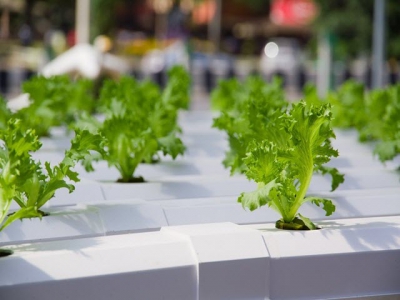Agribusinesses rocked by twin negative impacts

In spite of several highlights, the agricultural picture remains gloomy due to twin blows of climate change and coronavirus.
Agribusinesses rocked by twin negative impacts, photo Shutterstock
One of several agricultural enterprises gaining good results in the first quarter, Nafoods, one of Vietnam’s largest fruit and vegetable exporters and processors, has reported overall growth against last year. The group’s financial statement also showed that after-tax profit tripled over year to reach VND16.2 billion ($704,000).
“This is thanks to our proactive market, materials, and financial strategy. We have focused on nutrition, health, and developing the agricultural chain,” Nguyen Manh Hung, general director of Nafoods, told VIR. “By the end of March, our signed contracts reached 60 per cent of this year’s turnover target.”
Hung added that Nafoods plans to reach VND1.35 trillion ($58.7 million) of revenue in 2020. “However, with our current orders and production capacity, we can gain VND2 trillion ($87 million) if we successfully arrange capital of VND200 billion ($8.7 million) from banks and financial institutions,” he said.
Another winner is Lam Son Sugar JSC. The corporation’s financial report states that its after-tax profit in the first quarter of the year reached VND4.6 billion ($200,000), up 65 per cent on-year thanks to a 77 per cent increase in both revenue and capital costs, a 50 per cent increase of revenue from financial activities, and a 18 per cent decrease of sales costs.
However, many local agricultural businesses suffered losses. For example, PAN Group reported a 20 per cent drop in net revenue in the quarter, to VND1.28 trillion ($55.8 million) while consolidated after-tax profit was VND28.7 billion ($1.25 million), 40 per cent of the figure from 2019.
“The seed and confectionery segments suffered the biggest decline, with sales down 35 and 30 per cent, respectively, mainly due to the impact of the pandemic on travelling, sales, and marketing,” the group’s press release said.
While the first quarter is normally a busy time for corn trading, exports to major markets including Laos, Cambodia, and China were disrupted by border closures to control the outbreak. This left vast amounts of corn unexported.
“The production and business activities of the group were impacted by the pandemic but not disrupted because of its strong self-supply ability thanks to the closed value chain,” read the press release.
Similarly, Southern Seed Corporation (SSC) has also been suffering from the prolonged droughts and widespread saline intrusion, as well as disrupted transportation due to the pandemic, which have reduced gross profit.
SSC’s revenue was VND138 billion ($6 million), up 5.3 per cent on-year. However, sales expenses accounted for 91 per cent of net revenue, increasing sharply against the 66 per cent in 2019, while gross profit was only VND12.4 billion ($539,000), down 72.4 per cent on-year.SSC said that its after-tax profit dropped 84 per cent on-year after wide-scale restructuring of its business.
Another case is the country’s leading distributor and manufacturer of agricultural chemicals and pesticide Loc Troi Group, which suffered a net loss of VND37 billion ($1.6 million) while last year it gained a net profit of VND58 billion ($2.5 million).
According to a representative, the group’s net revenue in this period decreased by 53 per cent on-year, mostly due to decreasing revenue from pesticide and food because of the coronavirus, climate change, changes in agent structure, and sales policy for the drug industry, and the government’s steering policies related to rice exports.
The representative said there were remarkable changes in the agricultural sector in the first quarter. First, the total revenue of the sector plummeted. “This is the result of exports being interrupted by COVID-19 and the Vietnamese government suspending rice exports from March 24 to ensure domestic food security,” he said.
The second change was stagnant supply chains and sharply falling sales of plant pesticide, while the third was the low level of reinvestment in seeds.
“The decrease in agricultural exports has resulted in lower incomes for farmers and a decrease in financial capacity to invest in the next crops. Besides this, the consumption of agricultural products is still gloomy and unpredictable, affecting farmers’ enthusiasm,” the Loc Troi representative added.
The weather in early 2020 was also unfavourable, with hails and storms in the northern midlands and mountains, severe droughts in the Central Highlands region, and critical drought and saline intrusion in the Mekong Delta region.
Data from the first quarter by the General Statistics Office showed that due to the pandemic and extreme weather, the agricultural sector witnessed negative growth of 1.17 per cent on-year in the first four months.
The Ministry of Agriculture and Rural Development, estimated the total import-export turnover of agricultural, forestry, and aquatic products in the first four months of this year at $21.1 billion, with trade surplus down 4.1 per cent, at nearly $2.8 billion.
By the end of April, the export value of the main agricultural, fisheries, and husbandry products was nearly $5.8 billion, $2.2 billion, and $150 million, down 4.5, 10, and 23.8 per cent on-year, respectively. Forestry products alone reached $3.4 billion, up 3.9 per cent.
Related news
Tools

Phối trộn thức ăn chăn nuôi

Pha dung dịch thủy canh

Định mức cho tôm ăn

Phối trộn phân bón NPK

Xác định tỷ lệ tôm sống

Chuyển đổi đơn vị phân bón

Xác định công suất sục khí

Chuyển đổi đơn vị tôm

Tính diện tích nhà kính

Tính thể tích ao



 In climate change-hit Tien Giang, rice farmers switch…
In climate change-hit Tien Giang, rice farmers switch…  Bac Giang to host lychee trade promotion teleconference…
Bac Giang to host lychee trade promotion teleconference…